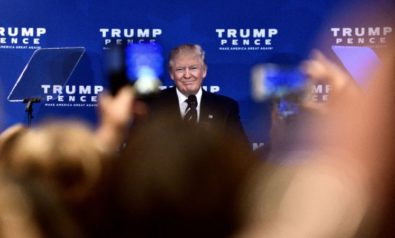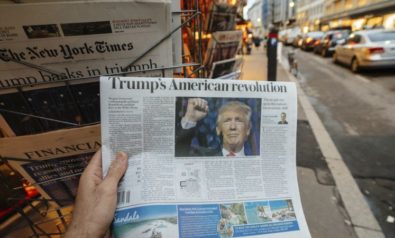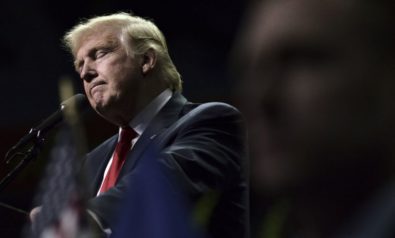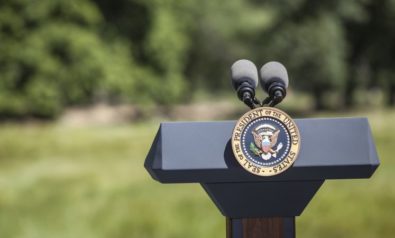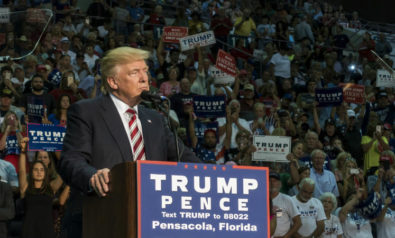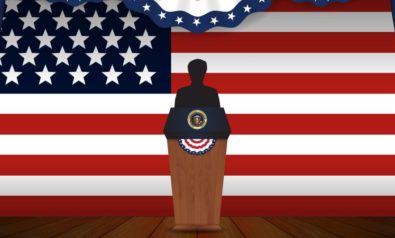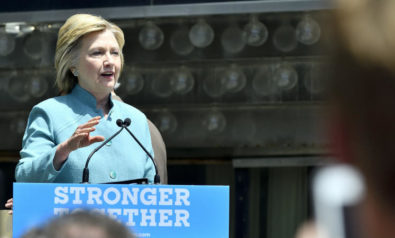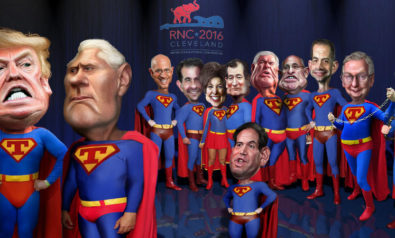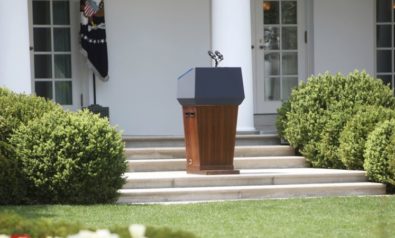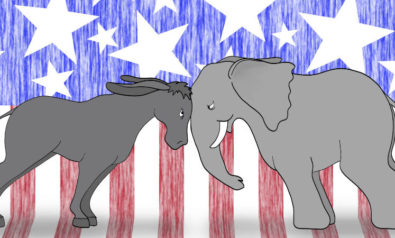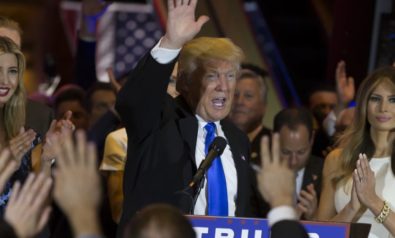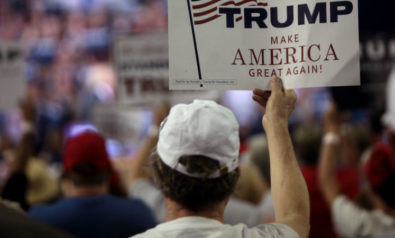What does Donald Trump’s victory mean for the future of the Korean Peninsula?
I recently returned to the United States after living, working and studying in Seoul, South Korea, for the past six years. As I prepared to return to America last spring, the US presidential election and the possibility of a Donald Trump presidency had gripped South Korea with such ferocity that I found myself doing a tour de Seoul trying to explain the Trump phenomenon. I was invited to speak to decision makers, lawyers, business professionals and politicians, and even appear on Korea’s most popular Korean-speaking foreigner show, Abnormal Summit, to discuss anything American and everything Donald Trump.
I learned that despite our differences in perspectives, these differences were compounded due to the sensationalist and hysterical reporting by Western media outlets. This reckless reporting has confused and terrified my Korean friends, colleagues and counterparts by sowing seeds of fear and doubt across East Asia, a region that could do without such media sensationalism.
MEDIA REPORTING OF DONALD TRUMP
Print media’s famed Time magazine has not let up, releasing, on November 17, another sensationalist piece entitled, “Donald Trump Doesn’t Seem to Have a North Korea Plan. That’s Extremely Worrying.” The article cites expert after expert, concluding: “Trump’s foreign policy is generally murky, his plan for dealing with North Korea, the world’s most unpredictable and clandestine regime, is nonexistent.”
This type of reporting is of course understandable, as traditional print media competes with and adapts to the rapidly changing media landscape. In October, an article in The New York Times, “More Wretched News for Newspapers as Advertising Woes Drive Anxiety,” reported: “Across the industry, similar declines in print advertising coupled with the shift to digital and, increasingly, mobile, are driving newspaper companies to reconfigure their newsrooms.”
You can begin to understand the desperation to attract clicks, views and subscriptions as the news industry’s business model experiences some serious growing pains, in its fight for survival and legitimacy. Print media will likely adapt and overcome, but in the meantime, in regards to maintaining and sustaining global stability and peace, such articles are incredibly irresponsible.
So, it is no wonder that my Korean friends and colleagues are terrified of a Trump presidency. They have been living in an echo chamber of media narratives that only push fear, doubt, anger and distrust. The election of Donald Trump was not about Korea or another country. The election was about the American people and their relationship with their leadership. A relationship the people of all nations can understand.
Rejection of Neoliberalism
As Professor Cornel West of Harvard University, in his critique of the neoliberal order and globalization, points out: “The age of Obama was the last gasp of neoliberalism. Despite some progressive words and symbolic gestures, Obama chose to ignore Wall Street crimes, reject bailouts for homeowners, oversee growing inequality … Meanwhile, poor and working class citizens of all colors have continued to suffer in relative silence … The progressive populism of Bernie Sanders nearly toppled the establishment of the Democratic party but Clinton and Obama came to the rescue to preserve the status quo.”
This rejection of the elite political class and their affinity for the status quo, a rejection for their lip service, is a global phenomenon. It will continue as the “silent, dismissed, forgotten majority” finds its voice and shapes the direction of a new era, of new leadership.
On November 12, concerned citizens across South Korea held another peaceful and impressive mass demonstration against the same corruption, influence peddling and elitism that plagues the US government. Just like Korea’s current repudiation of the status quo is not anger toward the American people, the election of Trump was not anger toward the rest of the world, but anger toward the status quo.
These mass movements are a positive and healthy signal of a new era of accountability for the faceless bureaucrats and lobbyists. New media is now holding their feet to the fire like never before. Like the Gutenberg Press, new media, allowing for the free flow of information, debate and discourse, connects the global “silent majority” and is redefining the relationship between the political class and the people.
THE VIEW FROM ASIA
But where others see chaos and fear, there are some East Asian experts that see an opportunity to reassert US leadership in the region—leadership that has been lacking.
In an interview with The Korea Times, Han Park, director and professor emeritus of public and international affairs at the University of Georgia, expressed a level of optimism regarding much needed American leadership in place of the vacuous “strategic patience” policy: “Today provides an opportunity to invite a restructuring of inter-Korea relations for both South and North Korea, which would be a great challenge and opportunity for the two Koreas that have been partitioned for 70 years.”
Patricia Lewis, international security research director at Chatham House, believes “it may be possible to achieve a sustainable deal for denuclearization of the peninsula.”
John Burton, a Seoul-based journalist and former Korea correspondent for the Financial Times, points out: “My hunch is that Trump might decide first to pursue a conciliatory approach on North Korea since this adheres to his self-image as a ‘dealmaker,’ while reflecting his unconventional views on U.S. foreign policy … If he appoints John Bolton, a noted ‘hawk’ on North Korea … then his strategy toward Pyongyang might prove to be an orthodox hardline one.”
If he doesn’t, and it seems likely, then all bets are off. Trump, true to form, will look to shake up the status quo and American leadership might once again return to East Asia. Leadership that is now needed to ensure a peaceful and successful transition to a new era of the people, by the people and for the people.
PEOPLE-TO-PEOPLE EXCHANGES IN KOREA
A policy of engagement and confidence through “people-to-people” exchanges, cultural, educational and sports is an important first step toward the de-escalation of tensions on the Korean Peninsula and the beginning of reconciliation, understanding and resolution between all parties in order to work toward a peaceful and prosperous Korea.
On November 21, at an event hosted by the University of Pennsylvania’s Liberty in North Korea Chapter, Congressman Charlie Rangel’s staff—alongside the Korean American community through the Divided Families movement—continued their efforts to bring to light the silent suffering of Korean Americans separated by the Korean War.
Introduced by Representative Charles B. Rangel, a Korean War veteran, and Representative Ed Royce, chairman of the House Foreign Affairs Committee, the House Concurrent Resolution 40 encourages the reunion of divided Korean American families by creating a pathway between Korean Americans and their long lost relatives separated by the Korean War of 1950-53. This is a small but important step toward reconciliation, resolution and a lasting peace on the peninsula.
In the end, it is in the best interest of the United States, in cooperation with the Republic of Korea (ROK), to maintain and sustain our great alliance with renewed leadership. An alliance maintained not only by governments, businesses and military counterparts, but by personal bonds forged in blood, sweat, tears and sacrifice. The US-South Korea alliance will remain strong now and into the future, as we work together toward a strong, independent and peacefully unified Korean Peninsula.
The views expressed in this article are the author’s own and do not necessarily reflect Fair Observer’s editorial policy.
Photo Credit: Narvikk
Support Fair Observer
We rely on your support for our independence, diversity and quality.
For more than 10 years, Fair Observer has been free, fair and independent. No billionaire owns us, no advertisers control us. We are a reader-supported nonprofit. Unlike many other publications, we keep our content free for readers regardless of where they live or whether they can afford to pay. We have no paywalls and no ads.
In the post-truth era of fake news, echo chambers and filter bubbles, we publish a plurality of perspectives from around the world. Anyone can publish with us, but everyone goes through a rigorous editorial process. So, you get fact-checked, well-reasoned content instead of noise.
We publish 2,500+ voices from 90+ countries. We also conduct education and training programs
on subjects ranging from digital media and journalism to writing and critical thinking. This
doesn’t come cheap. Servers, editors, trainers and web developers cost
money.
Please consider supporting us on a regular basis as a recurring donor or a
sustaining member.
Will you support FO’s journalism?
We rely on your support for our independence, diversity and quality.





